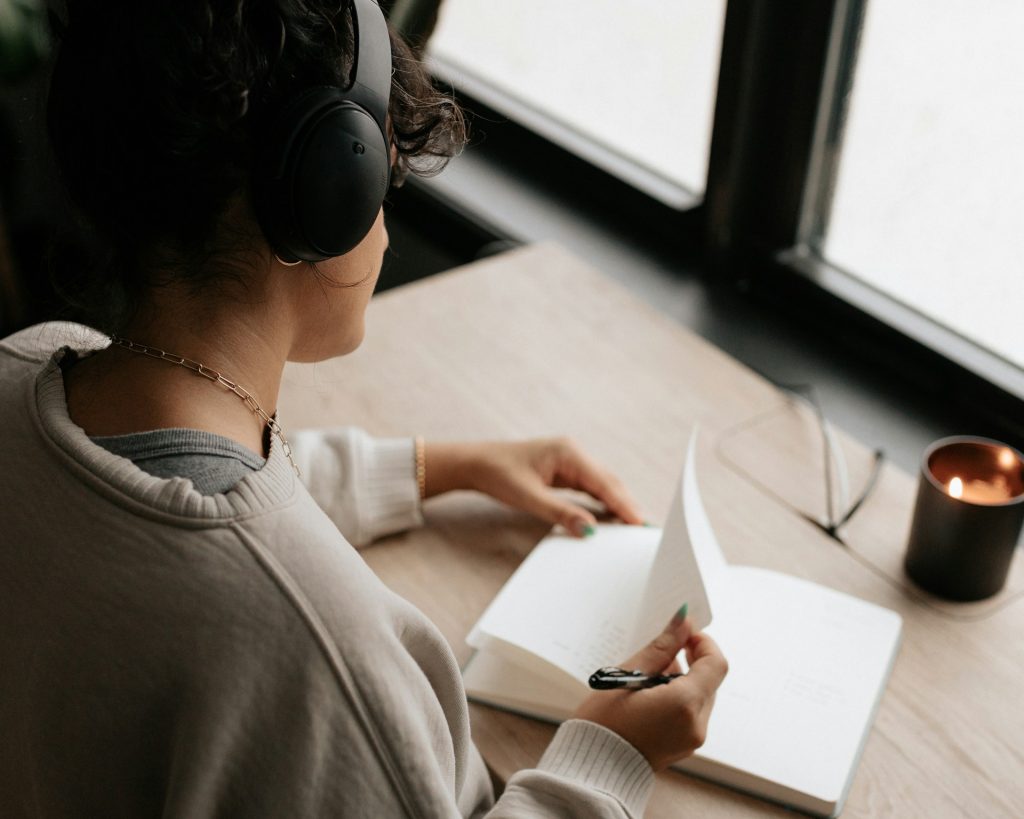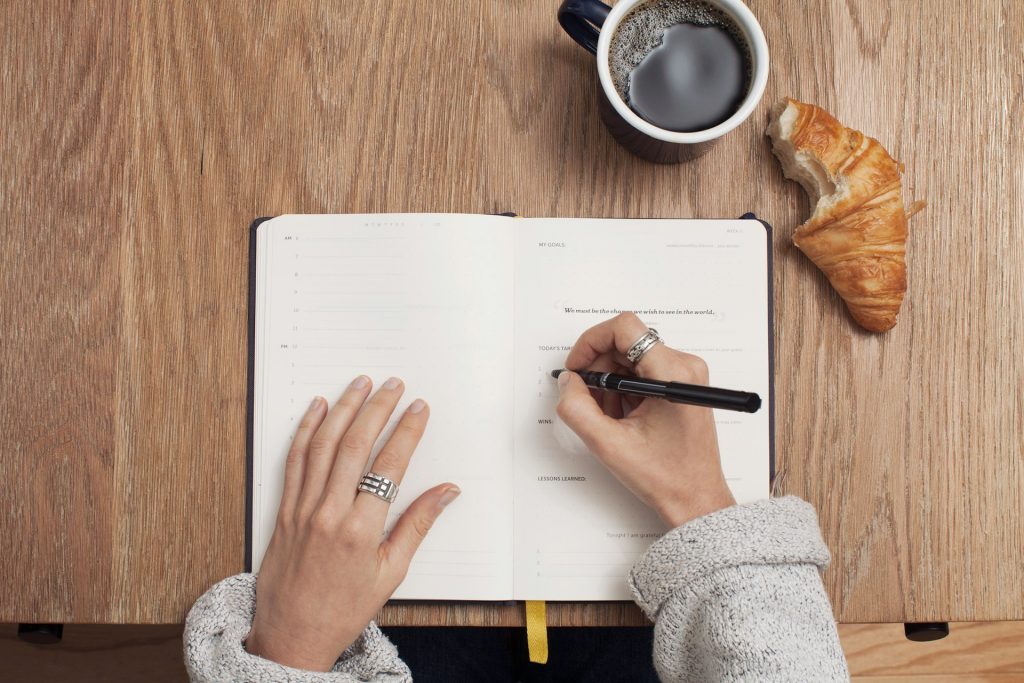Table of Contents
Your racing heart. Sweaty palms. That knot in your stomach that won’t go away. Sound familiar? What if I told you there’s a ridiculously simple daily habit that could make all of this better?
The 5-Minute Fix Nobody’s Talking About
Anxiety affects nearly 40% of Americans, and most of us are desperately searching for solutions that don’t involve expensive therapy or medication with side effects. The answer might be simpler than you think.
Morning journaling—yes, simply writing your thoughts down for just five minutes each day—has been showing incredible results for anxiety sufferers. But this isn’t your typical “dear diary” exercise.
Sarah Jensen, a marketing executive from Boston, tried everything from meditation apps to CBD oil. Nothing worked until she started what she calls her “morning brain dump.”
“I was skeptical at first,” she admits. “How could scribbling in a notebook possibly help with the anxiety that had plagued me for years? But after just two weeks, my coworkers started asking what changed. They said I seemed calmer, more focused.”
Why Your Brain Craves This Daily Reset

Our brains weren’t designed for the constant information overload we experience today. Social media notifications, work emails, family responsibilities—it’s no wonder anxiety rates are skyrocketing.
When you journal first thing in the morning, you’re essentially performing a mental reset before the chaos begins. It works because:
- You’re emptying your mind of worries before they have a chance to snowball
- You’re processing emotions instead of suppressing them
- You’re giving your brain a chance to organize thoughts without interruption
Dr. Michael Connolly, a neuropsychologist, explains: “Morning journaling activates the prefrontal cortex, which helps regulate emotional responses. It’s like taking out the mental trash before it piles up and starts to smell.”
The “Wrong Way” Most People Journal (And Why It Fails)
If you’ve tried journaling before without success, you might be doing it wrong. Most people make these crucial mistakes:
They set unrealistic expectations (nobody needs to write for 30 minutes!) They try to make it perfect (grammar and spelling don’t matter here) They censor themselves (the magic happens when you write without filters)
Jake Peterson, who struggled with anxiety for over a decade, found that his previous journaling attempts failed because he was overthinking it.
“I was trying to write profound, beautiful entries that I’d want to read years later. Now I just word-vomit whatever’s in my head—grocery lists mixed with deep fears mixed with random observations. It’s messy and that’s exactly why it works.”
The 5-Minute Protocol That Changes Everything

The beauty of effective anxiety journaling is its simplicity. Here’s the exact protocol that’s working for thousands:
First, keep a notebook and pen beside your bed. Before reaching for your phone in the morning—that’s crucial—grab your journal instead.
Write continuously for five minutes without stopping. Don’t think, don’t edit, don’t worry about what comes out. The only rule is to keep your pen moving.
Some days you’ll write about profound worries. Other days you’ll list what you need at the grocery store. Both are perfectly fine.
When Lisa Mendez, a teacher from Chicago, started this practice, she was surprised by what came out. “Some mornings I’d find myself writing about childhood memories I hadn’t thought about in years. Other days I’d just complain about my commute. But somehow, getting it all out of my head made room for calm.”
The Science Behind Why This Works
This isn’t just feel-good advice—there’s solid science backing it up. Research published in the Journal of Experimental Psychology found that writing about worries before a stressful task significantly improved performance and reduced anxiety.
Why? Because anxiety thrives on uncertainty and ambiguity. When thoughts remain swirling in your head, they grow bigger and scarier. Writing forces you to translate vague worries into concrete language.
“It’s like turning on the light to check for monsters under the bed,” explains therapist Rachel Kim. “The act of writing transforms abstract fears into something tangible that your brain can process and release.”
Beyond Anxiety: The Surprising Side Benefits
While reduced anxiety is the main draw, regular practitioners report numerous other benefits:
Better sleep quality as racing thoughts no longer keep them awake Improved decision-making skills as they gain clarity on what really matters Enhanced creativity as their minds become less cluttered Stronger relationships as they become more emotionally regulated
Mark Donovan, a software developer who started journaling after a panic attack during an important presentation, found that his work performance improved dramatically.
“I’m solving complex coding problems faster because my mind isn’t constantly interrupted by worry. It’s like I’ve gained extra brain power without doing anything but scribbling for five minutes each morning.”
Getting Started Today (Without Overthinking It)
Ready to try it? Remember these key points:
Keep it absurdly simple—a plain notebook works better than fancy journals with prompts Do it first thing—before checking your phone or email Don’t judge what comes out—this isn’t literature, it’s mental housekeeping Consistency matters more than length—five minutes daily beats 30 minutes once a week
“The best journal is the one you’ll actually use,” says anxiety coach Tina Rodriguez. “I’ve seen clients transform their mental health with nothing but a cheap spiral notebook and a hotel pen.”
Your First Week: What to Expect

Don’t be discouraged if you don’t feel immediate relief. The anxiety-busting effects of journaling tend to follow this pattern:
Days 1-2: Awkwardness and resistance as your brain adjusts to the new habit Days 3-5: Gradual awareness of thought patterns you hadn’t noticed before Days 6-7: The first moments of noticeable calm, often appearing randomly throughout your day
By week two, most people report significant changes in their anxiety levels. By month one, many find that what used to trigger major anxiety now feels manageable.
Making It Stick When Life Gets Crazy
The biggest challenge isn’t starting—it’s continuing when life gets hectic. Try these proven strategies:
Stack it with an existing habit (like placing your journal next to your coffee maker) Set a silent alarm labeled “5 minutes of calm” as a gentle reminder Tell someone about your commitment to create accountability
Remember: this is perhaps the only anxiety management technique that requires no special equipment, costs nothing, has zero side effects, and takes less time than brewing a cup of coffee.
Your Anxiety-Free Future Starts Tomorrow Morning
Your journey to reduced anxiety could begin with nothing more than five minutes tomorrow morning. No apps to download. No subscriptions to buy. No complicated techniques to master.
Just you, a pen, and a willingness to try something deceptively simple that could change everything.

Hi! I’m Dave, a longtime biohacker focused on natural ways to improve health and performance. My work revolves around analyzing the science behind cognitive enhancers, nutrition, and longevity strategies. I’m particularly interested in natural nicotine products and their effects on focus and energy. Everything I share is based on research and real-world application, ensuring practical, reliable insights. Please note, none of the information shared here is medical advice.




